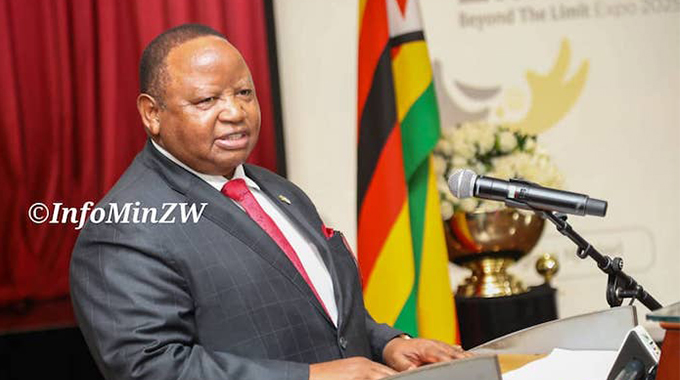Formal retail traders face stiff competition from informal traders

Senior Business Writer
THE Ministry of Industry and Commerce is seized with engagements with retail sector players to ensure sanity prevails following an outcry from some formal retail outlets that informal retailers are exerting undue competition, a situation if left unchecked has the potential to lead to “forced death” on the formal retailer, an official has said.
Recently, some retail players raised concern that they are facing stiff but unfair competition from mushrooming ‘dollar deals’ entrepreneurs.
They accused the informal sector of causing artificial or distorted prices and using the black-market rate and marking the same products downwards causing “forced death” on the formal retailer.”
Formal retail outlets acknowledge that consumers are increasingly looking for more affordable and convenient shopping options. Those options are now largely found at “dollar deals” outlets.
Most buildings in the central business districts of cities and towns are now being converted into small cubicles, which are then leased out to interested occupants who cannot afford large spaces, hence the partitioning of formerly large premises into smaller units.
The model buttresses the growing trend of shopping malls whose sizes differ depending on the location.
Shoppers have now become accustomed to glass partitioning as evidenced by how they frequent the shops each passing day as they are easily the preferred shopping.
OK Zimbabwe said only a policy intervention that levels the playing field to enable the formal retailer to survive can restore sanity in the sector.
Speaking at the launch of the Zimbabwe Institute of Strategic Thinking (ZIST) Thematic Committees and Clusters initiative yesterday, Industry and Commerce Deputy Minister, Roy Bhila said the ministry is seized with the matter with the objective of finding an amicable common ground.
He said Zimbabwe’s retail sector contributes around 60 percent to the country’s Gross Domestic Product (GDP) and it is also employing a significant number of workers directly and indirectly.
“Some of us may be aware that the formal retail chains in the country are facing stiff competition from the informal traders following the period our local currency was under attack.
“The Ministry is currently seized with the matter and has been engaging all the necessary key stakeholders to ensure that sanity is restored within the supply chain distribution given the significant amount of contribution these sectors avail to economic growth,” he said.
The deputy minister said an organised, diversified and vibrant retail and wholesale sector plays an important role as the country continues to develop economically and strive to provide essential goods and services to all consumers in line with the objective of achieving a Prosperous and Empowered Upper Middle Income Society by 2030.
He said the ministry remains committed to collaboration between the Government and the private sector.
“We are always ready to engage and listen as we work towards the formulation and implementation of informed and evidence-based policies.”
The retail and wholesale sector is this year projected to grow to US$5,2 billion from the current US$4,1 billion on the back of increased branch networks and increased shop density.
The commerce sector, consisting of the Wholesale and Retail trade, accounts for 16,9 percent of the gross domestic product and employs a labour force of 68 300 people.
Recently, Bulawayo City Council economic development officer Mr Kholisani Moyo said there is a need to restore sanity in the distribution chain noting that there is a distortion as some pockets of the manufacturing sector are now selling directly to final users excluding wholesalers and retailers.
He noted that some companies are choosing the United States dollar rather than using local currency, which has seen them wanting to collect hard cash directly from vendors and small retailers.
The deputy minister said the ministry remains committed to strengthening linkages with different value chains, as part of the implementation of the National Development Strategy 1.
“Within the pillar on Moving the Economy up the Value Chain and Structural Transformation, the Ministry came up with sector specific strategies, which seek to prioritise key value chain growth including the pharmaceutical strategy, leather strategy, cotton-to-clothing strategy, sugar strategy and iron and steel strategy, among others.
“Furthermore, the Local Content Strategy presents an opportunity for increased local production anchored on stimulating the development of local industry, value and supply chains as well as promoting local linkages among the agricultural, extractive, manufacturing and service sectors.”
Under this strategy, he said the Government is looking at domesticating a number of value chains to save millions of dollars in imports.
Turning to the Zimbabwe Institute of Strategic Thinking, the deputy minister noted that the programme’s theme “Nation Building – Rallying behind Zimbabwean energies to build viable economic enterprises through thematic committees and clusters” is consistent with the collective aspirations of the Government’s initiative to foster the industrialisation agenda by pursuing continuous public private sector engagements.
He said there have been tremendous and remarkable achievements through ZIST’s strategic engagements towards attaining the goal of Vision 2030.
ZIST has hosted several high-level dialogues involving Government Ministries, Departments and Agencies and the private sector to share and exchange ideas on how to move the nation forward.












Comments